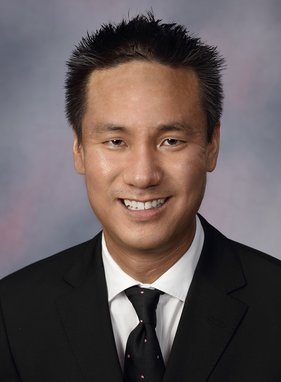
University of Nevada-Reno
RENO, Nev. — This summer, the University of Nevada-Reno Honors Program welcomed Matt Means as its new director. For nearly 60 years, the Honors Program has catered to highly motivated students by providing rigorous academic courses, personal advisors, priority enrollment and extra encouragement for students to succeed in their academic and professional aspirations.
“There are infinite benefits for an honors student,” Means said. “Students in turn benefit the community around them.”
The current model of the program dates back to 1989, and Means hopes to launch a planning process that will enhance and build upon the honors foundation in place.
“I think there is a little bit of honors in everybody,” Means said. “Honors should be about innovation, risk taking, embracing challenge – it should be about accepting and looking for new and diverse student populations – it should be about impacting multiple communities because the majority of our lives and careers aren’t going to be sequestered to a narrow band of a population.”
Means has come to the University from Fort Hays State University in Kansas, where he was initially an associate professor of music. Following stints in the faculty and as a department chair, he developed an honors college, when no such program had existed, in one semester. He then directed the honors college to multiple successes: the program posted double digit percentage increases yearly, retained 90% of its members through to graduation, and demonstrated an average yield of accepted students of 90%. As an accomplished violinist and successful honors college director Means has inspired others on many occasions, including multiple presentations at National Collegiate Honors Council’s national conferences, and highly regarded musical performances in the US, Europe, and Asia.
“The worst word to affiliate with an honors program is elitism,” Means said. “An honors program or college should be inclusive, flexible, and offer different pathways to success by engaging students in collaboration and cooperation with other academic interests and programs – honors should be about locking arms.”
In the past 30 years, there has been a major shift in education. Advanced Placement (AP) and International Baccalaureate (IB) programs have allowed students to reach higher education with more and more college credits.
“An honors program or college has to meet students where they’re at,” Means said. “It has to accommodate those who have college credits from high school. Moreover, with online education, there’s a great opportunity to reach honors students from a distance – something only eight-to-nine percent of programs across the country have utilized. I’m also interested in non-traditional students, such as adult learners – I want to help those students be considered honors too. Admissions can’t just be about a student’s past because standardized test scores alone are not a good predictor of a student’s success in college. Admissions needs to be holistic for the program to welcome and encourage all kinds of students.”
This year, Means wants to engage in a strategic planning process that will look comprehensively at the Honors Program to see how it can better serve the next generation of college students. In the future, Means hopes to double the population of students participating in the program.
“I want students to be able to reflect on how their experience in college has uniquely expanded their capability for impact on their graduation day,” Means said. “The college experience is critical for students because their whole schedule changes, their lives are completely different, and it’s an enormously transformative period for them. If we do a great job, this will inform the next seven generations of the student’s lives. The potential is something I find thrilling about my job.”
